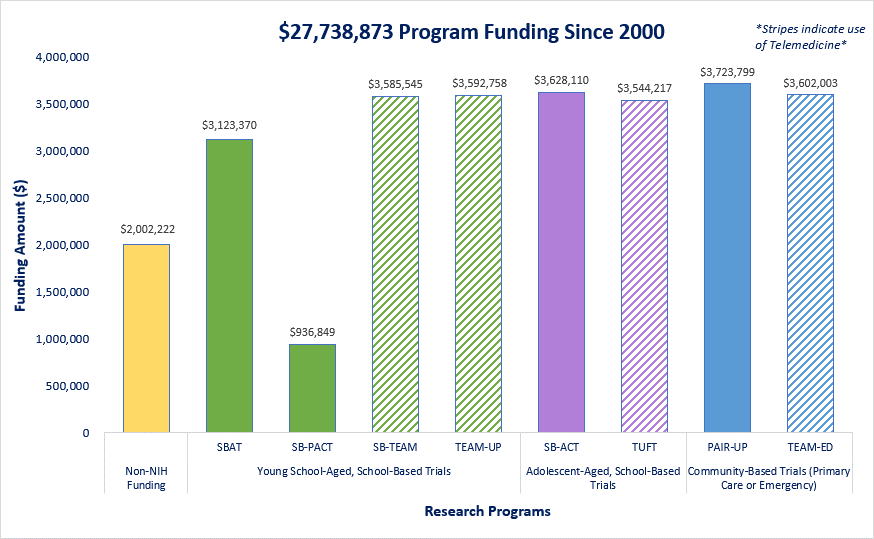Research Overview
The Problem
Over 7 million children in the U.S. are affected by asthma and more than ten percent of the children living in the city of Rochester, NY suffer from asthma. Asthma can cause recurrent symptoms as well as missed school days, parents’ missed workdays, and substantial stress on daily family life. Hospitalization rates for childhood asthma are high, and appear to be increasing.
Children living in the inner city are affected disproportionately by asthma. In Monroe County, NY, young urban children have hospitalization rates for asthma that are five times higher than rates for suburban children.
National guidelines recommend daily preventive medications for all children with moderate to severe asthma. Unfortunately, many children who should receive these medications are not receiving them. The reasons for this are not entirely clear.
The solutions to the asthma epidemic in Rochester and in the U.S. will not likely lie in new medicines and therapies. Beneficial treatments for childhood asthma are already available. We feel that at least part of the solution lies in overcoming multiple obstacles in the receipt of effective care.
Background
Led by Dr. Jill Halterman, the goal of the Preventive Care Program for Children with Asthma is to:
- Decrease the burden of asthma in the Rochester community
- Better understand the gaps in asthma healthcare
- Improve overall care for children who suffer from asthma
- Develop sustainable models for asthma care that can be disseminated
Impact by the Numbers (2006–2024)
- 17,000+ Children have been systematically screened for persistent asthma symptoms or poor asthma control (regardless of enrollment into these studies)
- 3,000+ Children and families have participated in research studies
- The majority of children enrolled into these programs live in the City of Rochester and attend schools in the Rochester City School District
- 3,000+ home visits have been conducted with children and families
- Approximately 1,000 children and teens have been authorized to receive their prescribed daily asthma medications at school
- 350+ Hours of counseling have been provided to families in these studies
- 500+ Children received at least one telemedicine evaluation for preventive asthma care
Funding Sources and Future Directions
We receive funding from local and national sources.
Primary funders include:
- National Institutes of Health
- Halcyon Hill Foundation
- Robert Wood Johnson Foundation
Future directions:
- Further expansion of our successful local programs to maximize the number of children with asthma we reach
- Continued focus on the sustainability and the national dissemination of our programs to various populations and settings
